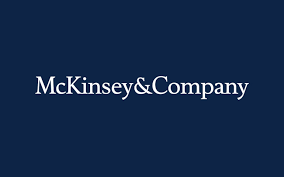
Weekly Business Insights from Top Ten Business Magazines
Extractive summaries and key takeaways from the articles curated from TOP TEN BUSINESS MAGAZINES to promote informed business decision-making | Since September 2017 | Week 342 | March 29-April 4, 2024

Shaping Section | 1
Economic conditions outlook, March 2024
By Jeffrey Condon et al., | McKinsey & Company | March 29, 2024
Extractive Summary of the Article | Listen
In the latest McKinsey Global Survey on economic conditions, respondents share much brighter assessments of the global economy and conditions in their countries than they did at the end of 2023, and views of the global economy are the most positive they’ve been since March 2022. In the December survey, respondents were equally likely to say the global economy had improved and worsened. Today, respondents are twice as likely to report improving rather than deteriorating conditions. Looking ahead to the next six months, respondents are also more optimistic than they were last quarter. Forty-six percent expect the global economy to improve—nearly double the share expecting worsening conditions—while 37 percent expected improvement in the previous survey.
Likewise, respondents offer hopeful views when asked about the most likely near-term scenario for the global economy, suggesting confidence in central banks. They are more likely to expect a soft landing overall—with either slowing or accelerating growth compared with 2023—than a recession. The largest share of respondents expect a soft landing, with slowing growth relative to 2023.
Respondents’ views on their own economies have also become more upbeat. More than half of respondents expect their economies to improve over the next six months. It’s the first time in two years that a majority of respondents have said that. In most regions, larger shares of respondents express optimism about economic conditions at home now than in December. Respondents in Europe—who offered the most negative assessments of any respondents in September and December—are now nearly twice as likely as in December to say conditions have improved in the past six months, though it is unclear what has prompted that change and whether it is a durable finding.
Geopolitical instability and conflict continues to be the most cited risk to global growth, selected by two-thirds of respondents for the second quarter in a row. 2024—a year in which more than 60 countries will hold national elections—transitions of political leadership have jumped from the fifth-most-cited to the second-most-cited threat to the world economy.
Looking at risks to growth in respondents’ countries, geopolitical instability and conflict remains the top perceived threat, cited by a larger share than in any quarter since March 2022. Uneasiness about domestic political conflicts and transitions of political leadership, now the second- and third-most-cited risks, have overtaken concerns about inflation, which was the second-most-cited risk in December.
Furthermore, respondents now view policy and regulatory changes as a top threat to their companies’ performance, and they offer more muted optimism than in December about their companies’ prospects.
3 key takeaways from the article
- Executives’ latest views on the global economy and their countries’ economies lean much more positive than they did at the end of 2023.
- In the latest McKinsey Global Survey on economic conditions, the outlook on domestic conditions in most regions has become more hopeful, despite ongoing shared concerns about geopolitical instability and conflicts. Expections about price increase remain in check whereas expectations about profits remain upbeat. Looking ahead to the next six months, respondents are also more optimistic than they were last quarter.
- Looking at risks to growth in respondents’ countries, geopolitical instability and conflict remains the top perceived threa. Uneasiness about domestic political conflicts and transitions of political leadership, now the second- and third-most-cited risks, have overtaken concerns about inflation, which was the second-most-cited risk in December. Furthermore, respondents now view policy and regulatory changes as a top threat to their companies’ performance, and they offer more muted optimism than in December about their companies’ prospects.
(Copyright lies with the publisher)
Topics: Global Economy, Inflation, Geo-political Risk, Consumer Demand

Leave a Reply
You must be logged in to post a comment.